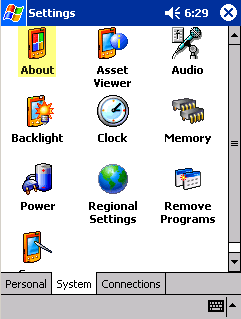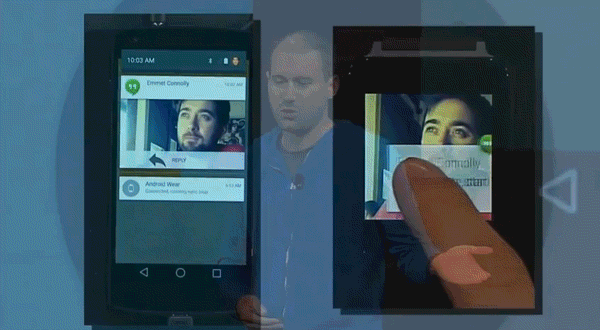Android Where?
Android Where?
There is no questioning the scope of Google’s ambitions. Consider the fact that yesterday’s two-and-a-half hour keynote was shorter than the 2013 version , and that the two keynotes had almost zero overlap!
While last year Google spent a lot of time both enhancing the Android development environment and Google+, this year was about extending Android to a whole host of new devices, including watches, cars, and TVs. However, just because Android has been an unqualified success on phones – and deservedly so – I’m a bit dubious as to how well Google’s vision will translate to the next generation of devices, in particular Android Wear.
Note: I reviewed all of Google’s announcement in today’s Daily Update (members-only)
Watches Are Not Phones
Beyond the rather obvious fact that one is on your wrist and the other is in your pocket, the primary difference between a watch and your phone is that you buy the former by choice and the latter by necessity. This has a significant effect on not just the size of the addressable market, but also the type of buyer in that market.
Because a phone is a necessity – everyone is going to buy one – there is going to be a very large segment of the market whose purchase decision is driven primarily by price. In turn, this means the minimum acceptable product with the lowest price is going to garner the largest market share. Indeed that is exactly what has happened with phones: while the iPhone is actually increasing its dominance of the high end, Android has covered the entire rest of the market. And, as we learned yesterday, that market is now >1 billion in size (and the purpose of Android One is to capture the huge swathes who cannot or will not pay more than $100).
To put it another way, in the case of a phone, the only decision to make is which phone to buy. When it comes to a watch or other wearable, though, there is another question that has to be answered first: do I even want to buy one at all.
This additional question will make wearables a much more difficult market for Android to crack. Instead of simply making available an item the customer needs to buy at a low price, the wearable maker must first demonstrate a reason to buy into the category in the first place, and only then does price come into play. Moreover, any item that is purchased because you want it is a sort of luxury good, at least relative to something you buy because you need it, which by extension means the percentage of buyers who will prefer a premium option will be much greater. This is the primary reason why Android’s tablet share is much less than its phone market share, and its usage share lower still.
New Devices Need New Interfaces
In many respects Google’s push to take their dominant platform and port it to what’s next is reminiscent of Microsoft’s previous attempts to take their dominant platform – Windows – and port it to phones. Which is why the Pocket PC 2000 (a.k.a. Windows Mobile v1) looked like this:

We laugh now at the idea of shrinking a PC UI to a phone, but I got the same sense from the Android Wear UI:

It’s hard to see the notification UI clearly, but it basically looks the exact same as a phone notification, just shrunk down. And, just like the phone, you swipe to dismiss. Sure, it’s very cool how the notification then disappears from the phone, but at the end of the day it’s hard to escape the feeling that you’re simply wearing a second phone on your wrist. Is saving the effort of reaching into your pocket really worth the cost, not just in dollars, but also in comfort and fashion? I’m skeptical, and it’s hard to see a device like Android Wear being anything more than a niche product, just like Windows Mobile.
Is Now the Future?
Notifications are nice, but probably the biggest selling point of Android Wear is as a conduit for Android Now. It’s Now that to my mind really speaks to Google’s ambition: having mastered the world’s information, Google is now focusing on the individual. Now seeks to be your digital personal assistant, anticipating your needs and providing you the information you need when you need it (and, of course, building one heck of an advertising profile). And, when it comes to just-in-time information, the presentation of which is initiated by your device, a watch is in fact a rather compelling addition to a smartphone. After all, as long as your phone is in your pocket you may not see the reminder about your upcoming meeting, or that you ought to leave a few minutes early because of bad traffic. By virtue of being in a more accessible place on your body a watch may be superior for this sort of passive interaction.
I question, though, if Now will turn out to be as meaningful to most people as Google thinks it will be. In other words, how many people actually want a personal digital assistant? There is an alternative view of computers in which they are more akin to a tool, something you pick up and use to do a job, and then set down when you are done with it. To be sure, that tool is incredibly powerful and capable of doing a great number of jobs, but it still operates in service of something outside of computers.
Consider your Android phone: it’s a way to connect with friends and family, a way to entertain yourself, a way to capture memories, and a way to learn. It’s meaningful because it lets you do what you want to do better. A digital assistant, on the other hand, is simply a more efficient way of interacting with your computer – or your computer interacting with you – and I question how much that vision that will ultimately resonate with people.
During yesterday’s keynote Benedict Evans posted this tweet:
Google and Apple are in a race. The end point: pic.twitter.com/JGJ7TjZWjh
— Benedict Evans (@BenedictEvans) June 25, 2014
I think there is more than a grain of truth here when it comes to Google, but I do feel Apple thinks about computing differently. Recall Steve Jobs’ famous characterization of the Mac – a bicycle for the mind. While a bicycle makes a human more efficient, it still depends on that human for locomotion and direction. I think we see that today with Siri. Siri does not try to anticipate your needs or tell you what to do, instead she responds to questions delivered by humans, helping them to find the answers far more efficiently than they could on their own.
The true test, of course, will come when we see Apple’s wearable. All of the criticisms I have levied against Android Wear potentially apply to Apple’s offering, particular the lack of a reason-to-buy. More fundamentally, though, the philosophical question I have raised is at the root of which company you think is more likely to own the future. Google already has the best computer, and their lead is only increasing; Apple, though, has always made the best bicycles.
文章版权归原作者所有。
